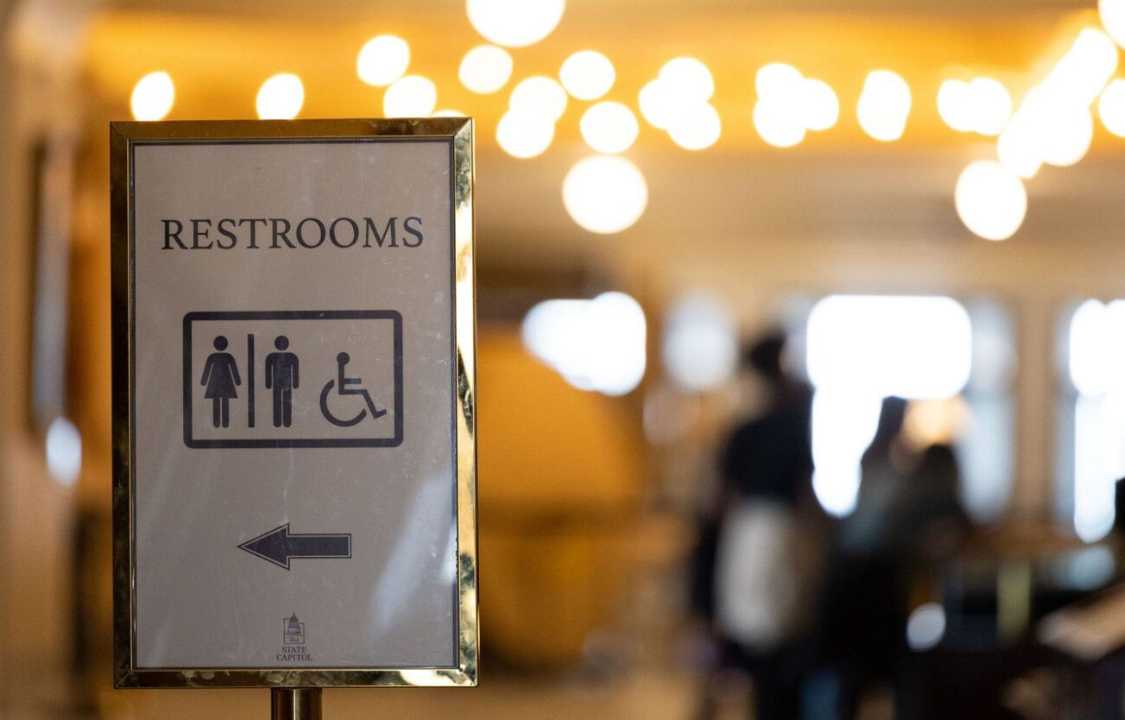
The Utah Legislature passed a bill banning transgender individuals from using public restrooms and locker rooms that are consistent with their gender identity, after the Senate made edits that initially loosened restrictions but then reversed them 24 hours later. The bill is now being sent to Gov. Spencer Cox.
Sen. Dan McCay introduced another amendment to the bill on January 26 with little explanation.
According to McCay, “There were activists who felt that there were some unintended consequences that could have been derived from the bill.” One was a student accidentally using the restroom or doing something else that could be considered criminal.
He claimed that the bill had been amended by lawmakers to “clarify” that there would be no legal consequences for a child unintentionally using the incorrect restroom.
 Miller Saige/KUER
Miller Saige/KUERThe Senate approved the substitute in a brief caucus meeting with fewer legislators, with all Republicans and two Democrats opposed. After that, the bill was returned to the House and passed the chamber without debate. All House Democrats and two Republicans opposed the bill, just like they did in the Senate.
According to McCay, the legislation creates “more private spaces” and “protects women from exposure that they don’t want while they’re in private spaces,” despite the fact that it has sparked controversy over concerns it targets and puts the transgender community at risk.
According to the bill, even if a transgender person doesn’t engage in any lewd or offensive behavior, they are still “at risk” of facing criminal charges unless they use the restroom or locker room that is appropriate for their birth gender in a publicly owned and operated building.
He continued, “A male should use the restroom of their birth sex. And if there are any questions, they should look for a non-gender specific restroom.”
In public schools, transgender students won’t be allowed to use restrooms or lockers that match their gender identities. To have access to mixed or single facilities, they would need to create a “privacy plan” with the school. Additionally, the bill may require more unisex restrooms to be built in new government-owned and operated buildings, as well as research into retrofitting existing facilities to add more individual occupancy stalls.
The caucus, according to Senate Minority Leader Luz Escamilla, didn’t object to the latest substitution in the bill, which was made “just to make it very clear” that a child would not be held accountable for accidentally using the incorrect bathroom.
Escamilla emphasized that her caucus “will continue to push for better public policy” despite the fierce opposition from Democrats to the bill.
Equality Utah, an LGBTQ rights advocacy group, praised the Legislature for making changes that “ensure that children in public schools will not face criminal penalties for being in bathrooms that do not align with their birth gender.”
“We continue to believe that transgender Utahns should have the right and freedom to use public restrooms and other facilities. We regret the anxiety and distress that many in the community are feeling as they read these bills.”



